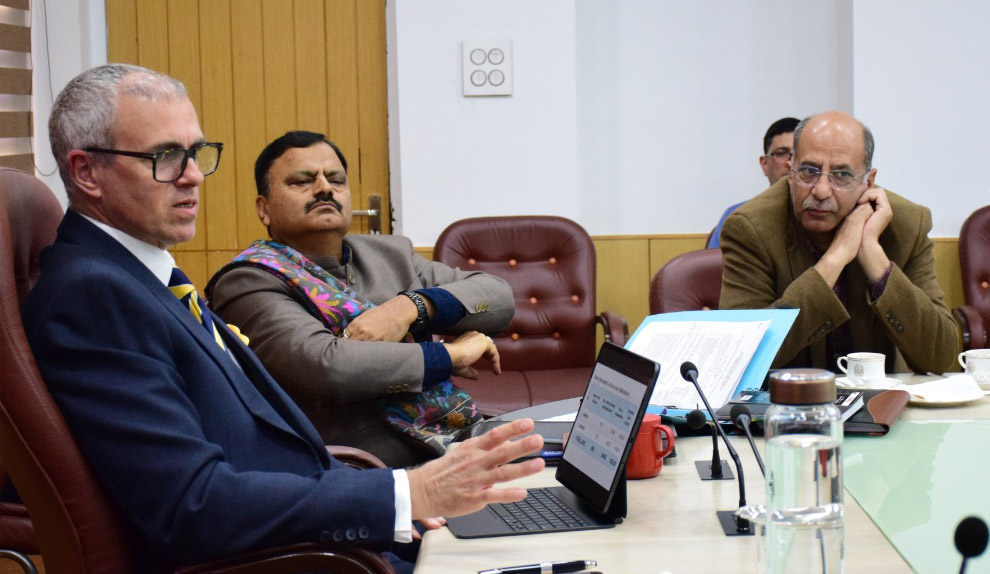JAMMU, Jan 27: Chief Minister Omar Abdullah convened a review meeting for the Jal Shakti Department at the Civil Secretariat today. The session focused on assessing the progress of the Jal Jeevan Mission (JJM) in Jammu and Kashmir.
The Chief Minister stressed the importance of effective implementation and strong monitoring frameworks to meet the mission’s objectives. Attendees included the Minister for Jal Shakti, Forest, Ecology & Environment, and Tribal Affairs Javed Ahmad Rana, CM Advisor Nasir Aslam Wani, Chief Secretary Atal Dulloo, Additional Chief Secretary (ACS) for Jal Shakti Shaleen Kabra, Additional Chief Secretary to the CM Dheeraj Gupta, as well as Principal Secretary Finance and other senior officials from relevant departments.
During the meeting, the ACS for Jal Shakti provided a detailed overview of the mission’s progress, goals, and obstacles. He noted that 81% of households in Jammu and Kashmir now have access to tap water through the Jal Jeevan Mission, along with ongoing efforts to meet the remaining targets.
The mission aims to deliver 55 liters per capita per day (lpcd) of safe drinking water, compliant with BIS 10500 standards. Innovative designs and meticulous technical scrutiny of Detailed Project Reports (DPRs) have resulted in significant cost savings of Rs 522 crore, highlighting the department’s commitment to efficiency and innovation.
The Chief Minister evaluated various challenges encountered during the mission’s execution, including low responses to tenders, delays in the supply of Galvanized Iron (GI) pipes in Jammu and Ductile Iron (DI) pipes in Kashmir, as well as the occurrence of dry borewells in several districts. Electro-mechanical issues also emerged as significant barriers to timely project completion.
The proposed project under the Jal Jeevan Mission encompasses 3,253 schemes designed to ensure a sustainable water supply system. The meeting also addressed the establishment of District Project Management Units (DPMUs) and the ongoing technical reviews by consultants to maintain the quality and success of the mission.
The Chief Minister emphasized the necessity for strong third-party monitoring mechanisms to boost transparency and accountability. He instructed that complaints from specific areas be resolved quickly by employing these monitoring agencies. Additionally, he urged for quick action on improperly placed water supply pipes above ground and the sustainability of water sources in affected regions.
The meeting also covered water quality monitoring and surveillance, with the Chief Minister advocating for the strengthening of Pani Samities at the Panchayat level. He encouraged ongoing communication with relevant Ministers and MLAs to clarify their roles in enhancing the effectiveness of these committees.
Other topics included the operation and maintenance of rural water supply, the extension of the Nal Jal Mitra Programme, e-billing systems, and various operational aspects. The Chief Minister highlighted the need to address manpower shortages within the department to improve service delivery and meet mission goals.
He expressed satisfaction with the JJM’s progress while reiterating the urgency of maintaining momentum and overcoming existing challenges. The Chief Minister assured full government support in achieving the mission’s vision of providing clean and reliable drinking water to every household in Jammu and Kashmir.


Leave a Reply